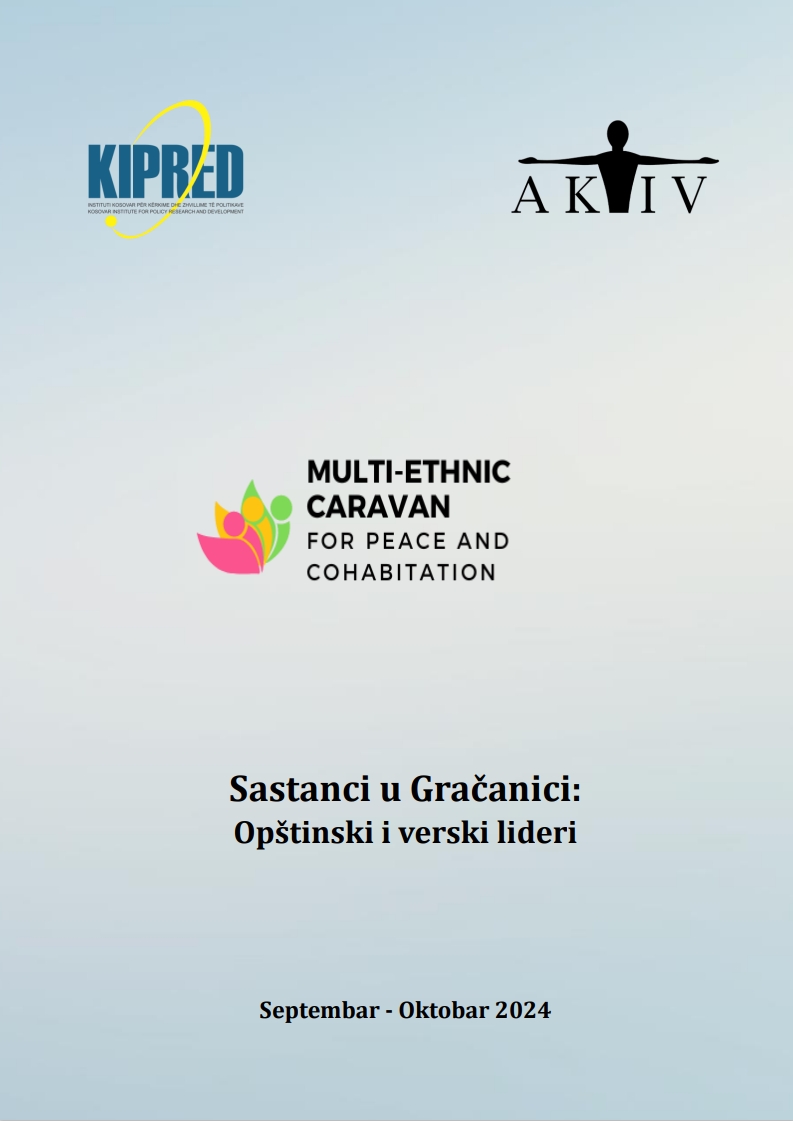According to the political analysis “Autonomy for the northern Part of Kosovo: Unfolding Scenarios and Regional Consequences” published by KIPRED, the problem of the north will be solved in the future Kosovo – Serbia dialogue with a “Ahtisarri Plus” package which will grant this part of the state an additional autonomy. This as a result, will negatively effect the functioning of Kosovo as a state as well as it will have negative effects on its neighbours, namely in Presevo Valley and Macedonia.
According to the authors, KIPRED’s Director, Mr. Ilir Deda, and the institute’s Senior Researcher, Mr. Shpend Kursani, this potential solution for the north would lead to the creation of a state with two separate entities between Serbs and Albanians which in turn will make Kosovo a non-functional state, just like the case of Bosnia. According to them, this solution would lead to the displacement of Serbs from the south to the north of Kosovo and Serbia, and the displacement of the remaining 4,000 Albanians in the north to the south. As a result of all this, the dissatisfaction among the Kosovo Albanians will grow, which will not leave the Presevo Valley, Macedonia, and Bosnia untouched.
The Presevo Valley will ask for reciprocity, however, according to this report, due to the fact that the Valley’s Albanians were left alone and unsupported by the political leadership in Kosovo since the conflict ended in 2001, the Valley’s Albanian grievances will again fall on deaf ears which will lead to their gradual migration towards Kosovo and Europe. The Medvedja case is one that best illustrates this where there already not more than 500 Albanians left out of 3,000 what they used to be before.
Macedonia will also suffer the consequences of such policy. Mr. Deda underscores that the continuing acts of violence of ethnic character that occurred recently in Macedonia are already leading to the loss of political legitimacy of the Albanian political establishment in the country which creates a political vacuum that will be captured by other more radical political forces. Whereas Mr. Kursani notes that the May protests which spontaneously gathered 10,000 Albanians in Skopje featuring a combination of nationalist and religious slogans shows best how the situation could easily escalate. According to him, if the similar protests occur in the future, with an autonomous north, it will have major disruptive consequences, which in turn will shudder the political stability. The "Ahtisaari Plus" as a solution for the north, will make the Albanians in Macedonia open the debate on additional demands which relate to the creation of bi-cameral Assembly and the federalisation of Macedonia, a topic which neither the Albanian nor the Macedonian political leadership would dare to open due to their current political comfort that they enjoy.
As part of the scenarios that would unfold as a result of possible autonomy for the north, the authors predict a rise of discontent among the Macedonians, which will only contribute to further radicalisation of the Albanians in Macedonia. This in turn will lead to early elections in Macedonia, which will find both ethnic camps in the country more radicalized.
In med-term, this policy will result in the creation of fertile grounds for the revision of current borders in the region. Albanians, as they currently stand, are not ready for the opening of such a scenario, and the existence of Macedonia as a state will be put into question. This scenario will touch upon other state in the Western Balkans, where BiH is likely to be dissolved. These changes in the region will not occur peacefully.
The Western powers are tired of the Balkans. They see the relations between Serbia and Kosovo as the last unresolved issue in the region and are requiring “normalized” relations between the two, short of mutual recognition. The “price” for this normalization is the autonomy for northern part of Kosovo. Given the regional dynamics, this envisioned autonomy will not lead to greater stability, but quite to the contrary. It will set the stage for yet another international involvement in the next 5 – 10 years, with much less legitimacy and trust by regional domestic players and the people of the region.
The authors of this policy analysis add that the scenario that they believe will unfold becomes even more dangerous for the region taking into account the United States’ strategic shift from Europe towards Asia-Pacific, which leaves the Western Balkans problem on the EU’s hands. The EU is divided and unprepared in its approach towards the Balkans as much as they were 20 years ago, and its current internal problems, make Europe even more incapable of facing problems in the Balkans of such magnitude.
KIPRED does not support any additional rights for the northern part of Kosovo and is against the issue of the north or any internal issue of Kosovo to be part of the Kosovo – Serbia dialogue.
Download full publication here.











